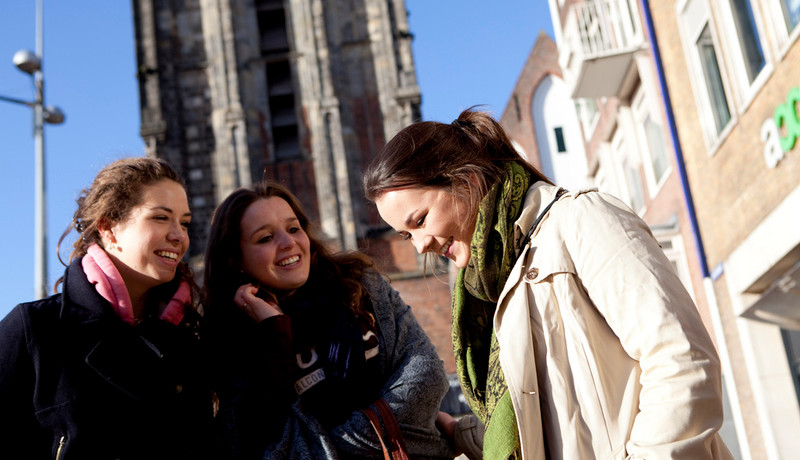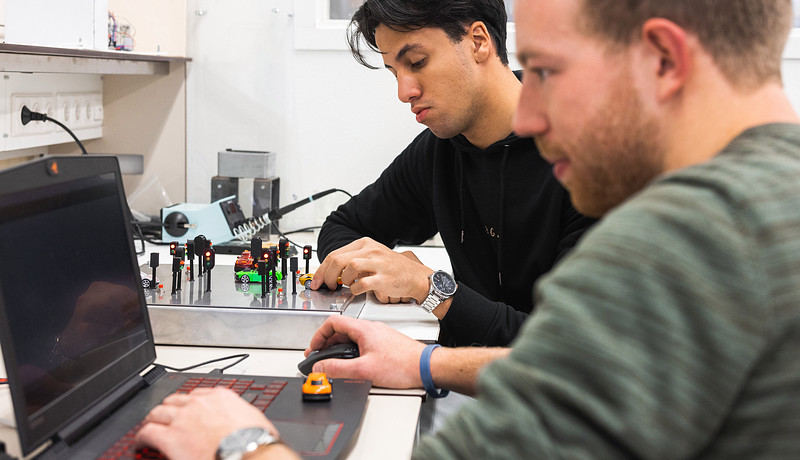Develop new energy network concepts with respect to transmission

Flexible Energy Technology
- Level
- Language
- English
- Credits
- 30 ECTS
- Startmonths
- Start: September
- Locations
- Groningen
The transition from traditional power generation to renewable energy sources requires an increase in the operational flexibility of the network. Renewable energy sources, such as wind or photovoltaic are either cyclical or have a fluctuating power level. As a result, the requirements with respect to the operational flexibility of all components in the grid become more demanding. Therefore, new energy network concepts with respect to transmission (AC or DC), conversion and storage need to be further developed.
This programme focusses on generation, transport, distribution and the control of electrical networks for modern grids. Both low voltage and high voltage grids are studied. Everything is approached from the perspective of an electrical engineer.
The program consists of a project and four courses: Power System Design, Power System Components, Renewable Energy and Power Conversion & Power Quality. The first two courses put emphasis on "classic" electrical grids, power generation and calculation methods, while the other two are giving in depth knowledge about renewable systems and the power quality aspects that come with modern electrical grids. With guest lectures, excursions, theoretical and practical assignments you will get in depth knowledge of the subject. Throughout the semester the students will work in groups on a project in designing (components of) a modern grid.
| Project Flexible Energy Technology | 10 |
| Power System Design | 5 |
| Power System Components | 5 |
| Renewable Energy | 5 |
| Power Conversion and Power Quality | 5 |
Take a look at the ECTS course catalogue (please look at 'exchange programmes') for more information.
Please note that the schedule for this programme may vary from week to week. The programme is intensive and students who apply for this programme are expected to be available and present for the whole duration of the programme and to do the whole programme of 30 ECTS credits.
Before you can start
This programme is accessible for students Mechatronics, Electronics and Sensor Technology. Students need to have completed 120 ECTS credits (4 semesters) at undergraduate level.
The programme is also accessible for students who have a background in other engineering disciplines, but they need to have finished courses in the following topics:
- Theory of electrical networks, AC and DC
- Basic theory of electrical machines and transformers
- Basics of electronics
Admission & application
Please check with your home university whether there is an agreement set up with the Hanze School that is offering the exchange programme of your choice. To apply for and be admitted for our exchange programme you should take the following steps
-
1. Be nominated by your home university
Once you have been nominated, your nomination will be checked by us and confirmed to your home university by email. You will receive your application link during our application period.
-
2. Submit your online application
Once you have been nominated by your home university you will receive a personal application link and the application instructions during our application period. The application is fully digital and documents do not have to be send by email or postal mail. Make sure you do not miss our application deadline!
-
3. Letter of Acceptance
Once you have submitted your application we will check your documents. If you have to re-submit any documents, we will let you know. We will be sending out Acceptance Letters from the beginning of May when you start in September and from the middle of October when you start in February.
Find out more about our application process and practical matters.
Frequently Asked Questions
Contact
-

Aart Hoogerwerf
Onderzoeker
Feedback component
How satisfied are you with the information on this page?






